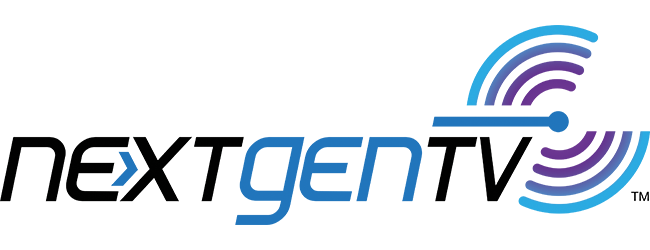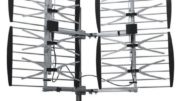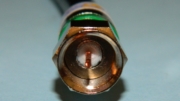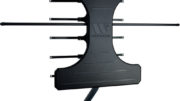Friends, let me apologize right up front for the clickbaity headline. I prefer not to use these overly dramatic headlines but there’s no denying they work.
Anyway.
For the last six or seven years, there’s been a consortium working to improve the way you get over-the-air television. Using the latest technology, they can now provide a much better level of service than anyone thought was possible. This new technology, called ATSC 3.0 or NextGen TV, promises a whole laundry list of improvements, not the least of which are:
- 4K picture and better quality sound
- on-demand and interactive programming
- ability to watch in a moving vehicle
- ads that are targeted to your preferences
It’s that last one that has broadcasters excited. While cable and satellite providers have had this ability for decades, over-the-air TV can only offer one commercial to its entire broadcast area. This new technology would let broadcasters charge more money for ads, which after all is the whole point of TV broadcasting in this country.
Why would they think you’d watch commercials?
No one likes commercials. We put up with them when we have to. If you have cable or satellite, you can get a DVR that lets you skip them. If you have streaming only, you can pay a few bucks more a month to avoid them. So what makes these broadcasters so sure that you’ll watch their commercials, when you avoid them everywhere else? It’s simple: You won’t have a choice.
As part of all of this new technology, you’ll also get practically unbreakable Digital Rights Management (DRM). DRM is copy protection, plain and simple. And this copy protection will probably keep you from DVRing or pausing or skipping commercials at all. It’s not really clear yet what you will or will not be allowed to do. The one thing it will definitely not do is let you capture video to your computer and put it on YouTube. You can do that now with over-the-air TV. (It’s sorta not legal, but in the same way that going 5mph over the limit is sorta not legal.)
This DRM will be built into every TV, tuner, and device that supports the new TV standard. You won’t be able to avoid it. In fact, some early devices did not have this feature because the DRM standard wasn’t finished. Those devices are pretty much obsolete at this point. Some manufacturers are offering free upgrades… some aren’t.
Will all of this kill over-the-air broadcasting?
Well, I don’t know. I am not optimistic, for a lot of reasons. First is that by forcing you to watch commercials, broadcasters are hobbling themselves yet again. Let’s say you have two choices. One lets you skip commercials. The other doesn’t. Of course you’re going to choose the one that lets you skip commercials. This will drive more people to pay-TV and streaming.
The other is that doubt and confusion are the worst things for a new technology. People will stay away from any tech that doesn’t seem like it’s completely ready. Can you blame them? We’ve all been through 40 years of tech that becomes obsolete the week after you buy it, and most folks are tired of it. My concern is that when people learn about this controversy, they’ll just decide not to watch over-the-air TV at all. Some of those folks who depend on it will just stop watching.
Another concern is cost. The last time we went through a TV transition, the government provided $100 in coupons to every household for the purpose of buying converters and equipment. That’s the equivalent of about $150 today. First of all I don’t see the government doing that again because Congress is a very different place today. More importantly, I don’t know if you’ll be able to get a DRM-equipped converter box down to that price point. That original $100 number was in the form of two $50 coupons. Will it be possible to buy a converter box with all this tech in it for such a low price? Eventually, sure, but what about when it’s needed?
Yes I know I’m contributing to the problem
I understand that articles like this one are just going to continue to stoke fears in the general public. There are those who say that if I really wanted to support the next generation of TV, I’d write nothing but articles about how good it is. But I think it’s important that people know the truth here. The truth is that DRM is a big part of the overall plan and that’s not going to change. The only question here is whether people will really accept it.





